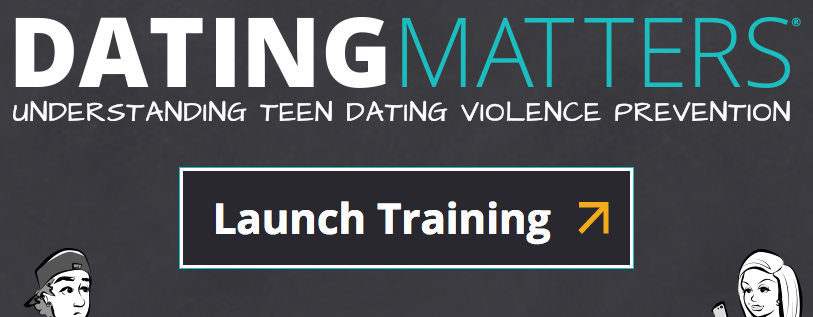Dating Matters: Understanding Teen Dating Violence Prevention

Dating Matters is part of CDC's Veto Violence initiative and is 60-minute online course which is available at no cost to educators, school personnel, youth mentors, and others who are interested in improving teen health. Follow a school administrator throughout his day as he highlights what teen dating violence is and how to prevent it through graphic novel scenarios, interactive exercises, and information gathered from dating violence experts.
This interactive training is designed to help educators, youth-serving organizations, and others working with teens understand the risk factors and warning signs associated with teen dating violence. The training addresses what characteristics of healthy and unhealthy teen relationships are, early warning signs and factors that may increase a teen’s risk for dating violence, as well as statistics, real-life examples, and short and long term consequences of dating violence. Participants also learn ways to promote healthy relationship behaviors. A variety of resources are available and can downloaded.
Access and download teen dating violence information, curricula, strategies, and tools. Choose Respect materials are companion resources that support Dating Matters.

